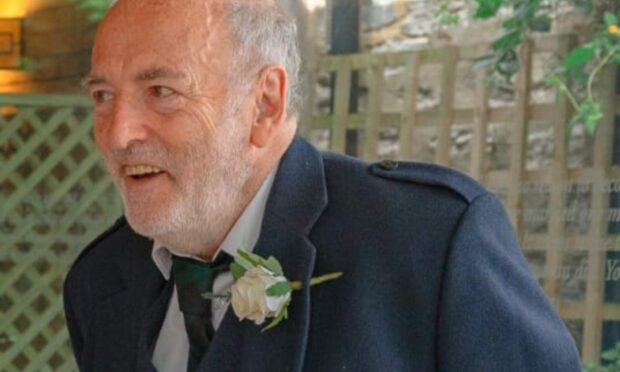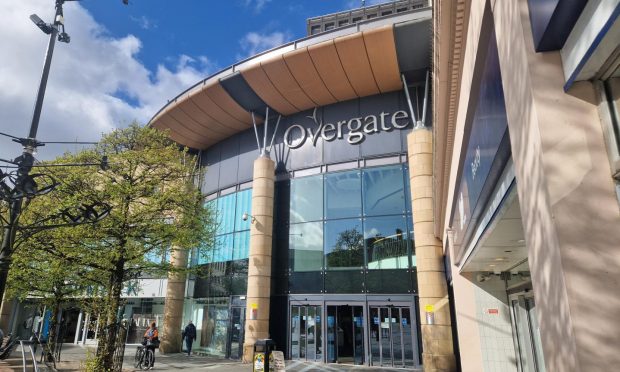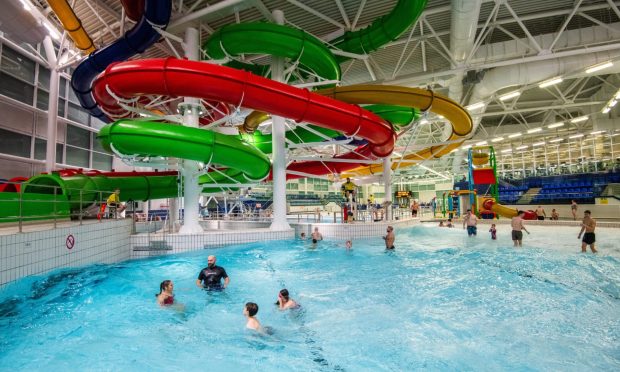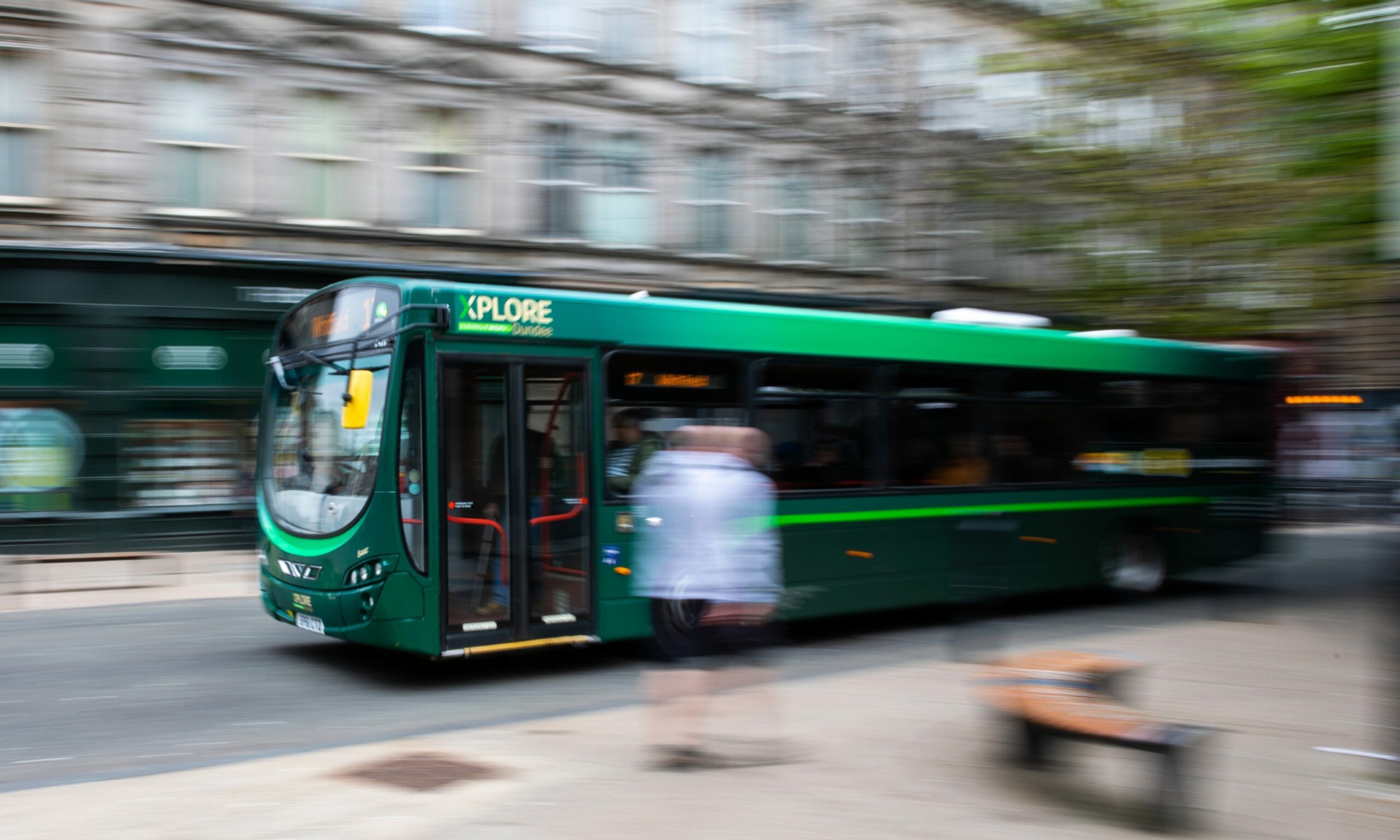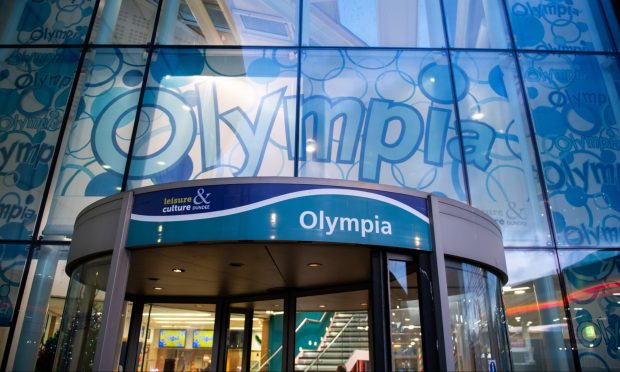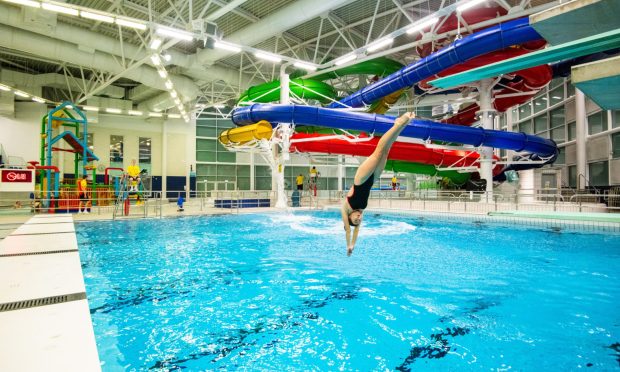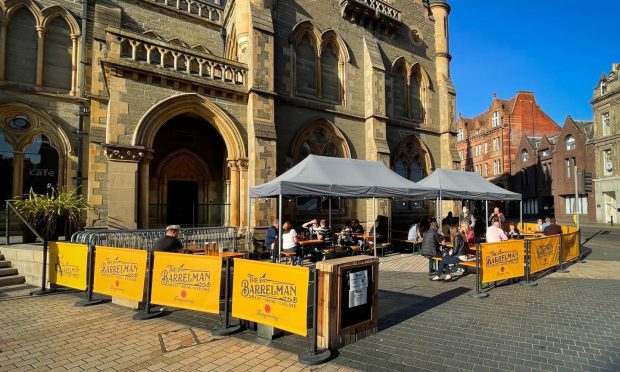Coronavirus restrictions in Dundee are to be ramped up from Monday following a local spike in the infection rate.
First Minister Nicola Sturgeon confirmed in the Scottish Parliament on Thursday afternoon that the city will be placed under tier three restrictions from Monday.
Angus, Fife and Perth and Kinross will be under level two restrictions.
Scotland’s new five-tier system for tackling coronavirus was voted through by MSPs on Tuesday.
Dundee City Council has produced a guide to answer many of the questions locals may have, giving guidance on areas such as travel, work, schools, hospitality, childcare, shielding, leisure, sport and exercise.
The restrictions explained below come into effect on Monday, November 2.
Why is Dundee in Level 3?
This has been determined by the Scottish Government in conjunction with public health officials, and in discussion with the city council and others. It reflects a number of local factors, including the prevalence and transmission of coronavirus (Covid-19) in the city.
Can I see family and friends?
As has been the case for the past few weeks, up to six people from two households can continue to meet outdoors and in hospitality settings such as cafes and restaurants. However, with limited exceptions such as extended households, you should not meet people within your own home.
What does Level 3 mean for travel?
There should be no non-essential travel into and out of the city. There are exemptions for people who need to travel into or out of the city for essential work, education, shopping or health reasons. You can attend medical appointments requiring travel into or out of the city.
It is also permitted to come into or leave the city for outdoor exercise, shared parenting and to attend weddings and funerals. Transit through the city (eg driving from one area outwith Dundee to another via the Kingsway) is allowed.
Non-essential use of public transport should be avoided. People on public transport are urged to wear a face covering unless exempt. People should also avoid car sharing with anyone from outside their household wherever possible. Active travel – walking, cycling etc – is encouraged.
What does it mean for work?
Until it is deemed safe for workplaces to reopen, working from home and working flexibly will remain the default for those who can.
Where homeworking is not possible, businesses and organisations are encouraged to manage travel demand through staggered start times and flexible working patterns.
I live in Dundee but work elsewhere. What should I do?
The default position remains that anyone who can work from home should continue to do so. If it is essential that you travel to another area for work then you can do so. Avoid car sharing where possible and, if you have to use public transport, wear a face covering unless you are exempt.
I live outwith Dundee but work in the city. What should I do?
As with the above, the default position remains that anyone who can work from home should continue to do so. If it is essential that you travel into the city for work then you can do so. Avoid car sharing where possible and, if you have to use public transport, wear a face covering unless you are exempt.
What does Level 3 mean for schools?
Under the level three restrictions, schools remain open with enhanced protective measures in place, including the wearing of face coverings.
Senior pupils and their teachers to wear face masks in Dundee classrooms
I have younger children. What childcare arrangements are allowed?
Early learning facilities and formal childcare can continue to operate, with enhanced protective measures in place. Informal childcare is allowed with restrictions on numbers.
What about universities and colleges?
The current protection level means that universities and colleges can offer only restricted blended learning. People are urged to contact their university or college directly for further information.
I am on the shielding list. What does this mean for me?
While this is not a return to the restrictions which were in place during lockdown, shielders are being asked to reduce contact with others. They have been urged to limit meeting people outside their own household and avoid indoor public spaces as much as possible.
Shielders are urged to strictly follow the guidelines when shopping and limit the number of times they go to the shops, visiting at quieter times wherever possible. Those who can’t work from home are advised to discuss with their employer to ensure all appropriate protections are in place. If these cannot be implemented, they are advised to discuss getting a fit note with their GP or clinician.
For assistance, contact the helpline on 0800 111 4000.
I have a child who is on the shielding list. What should I do?
Parents or guardians should discuss with their GP or clinician whether children on the shielding list should still attend school or formal childcare.
I’m not on the shielding list but am in need of support. What should I do?
Lifeline support is available to people in Dundee who have been asked to self-isolate, or who are otherwise vulnerable and in urgent need of help.
Wherever possible, arrangements for the supply of essentials such as groceries and medicines during the period of self-isolation should be organised through family, friends, neighbours or community providers.
Anyone who cannot access such support and is in urgent need of help should apply online or contact the Dundee City Council on 0300 123 1403 (8.30am to 5pm, Monday to Friday).
What sport and exercise is permitted under Level 3 restrictions?
All outdoor exercise is allowed, except contact sports for over 18s (professional sports have an exemption).
Indoors, unless you are aged under 18, people should only take part in individual exercise. Classes and group exercise sessions are not permitted.
Will the shops remain open?
All shops can remain open. Customers and staff have been told to continue to follow the public health guidance on face coverings and social distancing. City residents are being encouraged to only travel outwith to other areas for essential shopping that cannot be done locally.
What does it mean for cafes, pubs and restaurants?
Cafes, pubs and restaurants can open until 6pm, but alcohol cannot be sold either indoors or outdoors. People must be seated at a table while eating and drinking. Takeaway alcohol and food sales can continue. Hotels and other accommodation can continue to be able to serve evening meals to residents.
What about leisure and entertainment?
Leisure and entertainment venues are not permitted to open under the restrictions. Examples of this include cinemas, amusement arcades, soft play, funfairs, indoor bowling, theatres, snooker/pool halls, music venues, casinos, bingo halls, nightclubs and adult entertainment.
Can I get my hair cut or visit a beautician?
Close contact services, such as hairdressers, barbers and beauticians can remain open, but may be subject to additional protective measures. Customers should wear a face covering at all times within the premises.
Mobile hairdressing and beauty services are not permitted under the Level 3 restrictions.
Are driving lessons allowed?
Yes, these are permitted under the current protection level.
I am planning to visit Dundee for work or leisure. Is this allowed?
People should only be travelling into Dundee for essential purposes. Hotels, B&Bs etc can open, but only for essential, work-related use. The guidance discourages the use of accommodation for leisure/tourism purposes by people from outwith the city.
I own a business which is significantly affected by these restrictions. What help is available?
A grant of £2,000 or £3,000 (depending on rateable value) is available for businesses required to close by law, payable every four weeks for the duration protective measures are in place. A hardship grant of £1,400 or £2,100 (depending on rateable value) is also available for businesses that remain open but are specifically required to modify their operations by protective measures.
A range of other advice and support is available.
What council services are affected?
In line with the guidance, the council will continue to offer essential face-to-face services. People are asked to use online services on the council’s website wherever possible.
When will the level change?
The levels throughout Scotland will be reviewed weekly. However, it is likely that levels will generally remain in place for at least two to four weeks to give time for measures to have an effect on the transmission of the virus.
